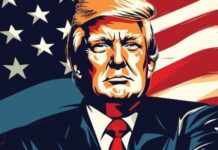
The federal government was not happy with the on-site arrests it made during and after the January 6 riots. In November, it was revealed that Federal Air Marshalls were diverted from their duties to follow conservative January 6 “suspects,” so designated because they were in Washington, D.C., on the protest date.
It didn’t matter if they had been to the Capitol Building. Some of these “domestic terrorists” had the misfortune of visiting the nation’s capital for job interviews, family matters, and, in one case, a funeral. Every conservative was secretly dubbed a “domestic terrorist” for daring to walk the streets of D.C. on January 6.
While conservatives are still digesting the fact that they are “domestic terrorists,” the House Judiciary Committee revealed another bombshell. The federal government asked banks to scour consumer transactions, looking for incriminating evidence linking customers to January 6.
The revelations became known as the House Judiciary Committee’s subcommittee on the Weaponization of the Federal Government, which has ramped up investigations into governmental overreach regarding January 6 “investigations.”
Committee Chair Jim Jordan (R-OH) revealed that documents obtained by the committee suggest that following the events of January 6, 2021, the Treasury Department’s Office of Stakeholder Integration and Engagement in the Strategic Operations of FinCEN distributed materials to financial institutions. These materials included “typologies” of “various persons of interest” and offered banks “suggested search terms and Merchant Category Codes” to identify transactions on behalf of federal law enforcement.
Jordan further specified that, based on the analysis, FinCEN alerted financial institutions to indicators of “extremism.” These indicators encompassed activities such as payments for transportation to areas with no apparent purpose (e.g., bus tickets, rental cars, or plane tickets), the acquisition of books, including religious texts, and subscriptions to media containing “extremist views.” Investigators warned financial institutions that religious texts indicated potential ties to extremism.
The House Judiciary Committee disclosed that federal investigators requested banks to examine and filter customer transactions using terms like “MAGA” and “Trump” as part of the investigation into the events of January 6. The investigators also issued a warning that purchases of “religious texts” could be indicative of “extremism.” Additionally, payment apps like Zelle were directed to search payment messages for “extremism.”
Not content with these broad searches, the Treasury Department’s Office of Stakeholder Integration and Engagement in the Strategic Operations of FinCEN distributed materials to financial institutions. These materials included “typologies” of “various persons of interest” and offered banks “suggested search terms and Merchant Category Codes for identifying transactions on behalf of federal law enforcement.”
As part of this effort, FinCEN distributed slides to banks. These slides explained how banks could use merchant category codes (MCC) to identify customers whose transactions might indicate “potential active shooters” and could include individuals categorized as “dangerous International Terrorists/ Domestic Terrorists/ Homegrown Violence Extremists (‘Lone Wolves’).”
Federal investigators also suggested searching transactions for keywords like “Dick’s Sporting Goods,” “Cabela’s,” and “Bass Pro Shops” along with more specific phrases and merchant codes like “Sporting and Recreational Goods and Supplies” and “Small Arms.”
Jordan formally requested that the former director of FinCEN, Noah Bishoff, appear before the committee for an interview, as he feels he possesses the necessary information for the committee’s ongoing investigation into the government’s unauthorized surveillance of American citizens.
The Committee is also looking into Bank of America, which voluntarily provided the FBI with a list of individuals who made transactions in and around Washington, D.C., using a Bank of America credit or debit card between January 5 and 7, 2021. FBI personnel then provided Bank of America with specific search query terms, expressing interest in customers who had purchased a firearm in the past or had purchased lodgings or airline travel within that date range.
Even more concerning, a source familiar with the obtained documents said that Jan. 6, 2021, served as the “impetus” for the queries and searches initiated by the federal government. The government is now using this illegally obtained information to investigate cases “beyond January 6.”
Jordan expressed concern that FinCEN characterized individuals as potential threat actors despite transactions showing no apparent criminal connection and relating to Americans exercising their Second Amendment rights. He criticized the pervasive financial surveillance, conducted in coordination with federal law enforcement, into Americans’ private transactions, calling it alarming and raising doubts about FinCEN’s respect for fundamental liberties.
It’s a sad state of affairs in the United States when conservatives are no longer shocked to be labeled “domestic terrorists.” It’s just another day living in Biden’s version of the Land of the Free.















